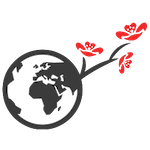New pages
From CoExistNippon Wiki
- 22:49, 6 February 2024 Table Manners (hist | edit) [5,452 bytes] Cenadmin (talk | contribs) (Created page with "alt=A set of Japanese cuisine|thumb|A set of Japanese cuisine Dining in Japan is an experience that transcends the mere act of eating. It's a cultural tapestry woven with intricate etiquette, unspoken rules, and a deep respect for both the food and the company you share it with. Navigating this etiquette can seem daunting for foreign visitors, but understanding these traditions will not only enhance your dining experience but also show respect to you...") Tag: Visual edit
- 22:47, 6 February 2024 Public Space (hist | edit) [3,419 bytes] Cenadmin (talk | contribs) (Created page with "In Japan, public spaces are considered shared spaces that should be respected by everyone. This is reflected in the Japanese concept of minna no kuni, which translates to "the land of all people." As such, there are a number of etiquette rules that Japanese people follow when using public spaces.<ref>[https://www.yamanashi-kankou.jp/english/about-yamanashi/manners.html Japanese Manners and Customs]</ref> == '''Cleanliness and Order''' == In Japan, cleanliness and order...") Tag: Visual edit
- 22:46, 6 February 2024 Photo and Filming (hist | edit) [5,322 bytes] Cenadmin (talk | contribs) (Created page with "Japan is a country with a rich culture and history, and it is a popular destination for tourists and foreign residents alike. As a visitor to Japan, it is important to be aware of the etiquette rules that apply to photo and filming. These rules are in place to protect the privacy of individuals and property, and to ensure that everyone enjoys their experience in Japan. == '''Rules''' == === '''Do not take photos or videos without permission.''' === This includes photos...") Tag: Visual edit
- 22:45, 6 February 2024 Noise Pollution (hist | edit) [4,021 bytes] Cenadmin (talk | contribs) (Created page with "Noise pollution is a serious problem in Japan, particularly in urban areas. It can have a significant impact on people's health and well-being, and it can also lead to conflicts between neighbors. Types of Noise Pollution Noise pollution can be caused by a variety of sources, including: Traffic: Traffic noise is a major source of noise pollution in Japan. It can be especially disruptive at night, when traffic is typically heavier. Construction: Construction noise can...") Tag: Visual edit
- 22:44, 6 February 2024 Moving House (hist | edit) [4,663 bytes] Cenadmin (talk | contribs) (Created page with "Moving greetings are a common courtesy in Japan. They can have many benefits, such as learning about your new area, avoiding conflicts, and building community. However, there are also some potential drawbacks to not moving greetings. Ultimately, the decision of whether or not to move greetings is a personal one.<ref>[https://www.nittsu.co.jp/hikkoshi/faq/schedule/04.html 引越しの挨拶で気をつけることはありますか?]</ref> == '''Pros of moving greeting...") Tag: Visual edit
- 21:50, 6 February 2024 Mountain Climbing and River Swimming Safety (hist | edit) [4,723 bytes] Cenadmin (talk | contribs) (Created page with "Japan is a beautiful country with a wide variety of mountains and rivers. These natural features offer a wealth of opportunities for recreation and enjoyment, but they can also be dangerous if proper safety precautions are not taken. This article provides information on important safety rules to follow when mountain climbing or river swimming in Japan. == '''Mountain Climbing Safety''' == === '''Weather Conditions''' === File:Mountain_in_Japan.png|link=https://wiki.c...") Tag: Visual edit
- 21:35, 6 February 2024 Greeting and Conversation (hist | edit) [4,568 bytes] Cenadmin (talk | contribs) (Created page with "In Japan, greeting and conversation are important aspects of social interaction. They are a way to show respect, build relationships, and create a positive atmosphere. == '''Rules for Greeting''' == When greeting someone in Japan, it is customary to bow. The depth of the bow depends on the situation, but it should always be respectful. In general, the deeper the bow, the more respect you are showing. Here are some examples of appropriate bows:<ref>[https://co-medical.m...") Tag: Visual edit
- 21:34, 6 February 2024 Garbage Disposal (hist | edit) [3,262 bytes] Cenadmin (talk | contribs) (Created page with "alt=Trash bags in Kobe City|thumb|Trash bags in Kobe City, Hyogo Prefecture (plastic containers and packaging; non-combustible garbage; cans, glass bottles, PET bottles; combustible Garbage).<ref>[https://www.city.kobe.lg.jp/a04164/kurashi/recycle/gomi/dashikata/shigen/shitebukuro/index.html 神戸市家庭系ごみの指定袋制度]</ref> In Japan, trash disposal rules vary depending on the municipality. For example, the days on which co...") Tag: Visual edit
- 21:24, 6 February 2024 Elevator (hist | edit) [3,926 bytes] Cenadmin (talk | contribs) (Created page with "Elevators are a common sight in Japan, and it is important to be aware of the proper etiquette when using them. Here are some tips for foreign residents who want to avoid giving off a bad impression.<ref>[https://jp.stanby.com/magazine/entry/220962 エレベーターのマナーとは?乗り方に関する基本から注意点まで紹介]</ref> == '''Getting on and off the elevator''' == When you are getting on the elevator, it is important to '''let people off first...") Tag: Visual edit
- 21:23, 6 February 2024 Dress and Makeup (hist | edit) [3,536 bytes] Cenadmin (talk | contribs) (Created page with "In Japan, there are a number of unspoken rules regarding dress and makeup. These rules are often based on cultural values, such as the importance of cleanliness and modesty. For foreign residents, it is important to be aware of these rules in order to avoid giving off a bad impression. == '''Rules to Keep in Mind''' == === '''Be clean and well-groomed.''' === This means showering regularly, brushing your teeth, and wearing clean, wrinkle-free clothing. In Japan, it is...") Tag: Visual edit
